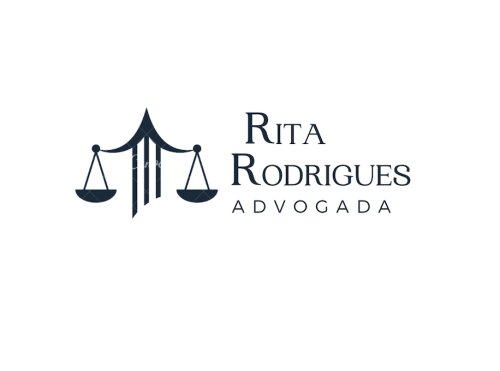Best Transportation Lawyers in Porto
Share your needs with us, get contacted by law firms.
Free. Takes 2 min.
List of the best lawyers in Porto, Portugal
About Transportation Law in Porto, Portugal
Transportation in Porto, Portugal, is a dynamic sector that encompasses road, rail, maritime, and air transit. Porto, as a major urban center in the north of Portugal, has a robust transportation network serving daily commuters, businesses, and visitors. The local transportation system is acclaimed for its mix of public transport options like the Metro do Porto, urban buses, taxis, and a network of roads connecting the city with the rest of Portugal and Europe. Laws governing transportation in Porto are designed to ensure safety, efficiency, and sustainability while balancing the interests of individuals, businesses, and the public sector.
Why You May Need a Lawyer
Navigating transportation issues in Porto can be complex due to the overlapping regulations at municipal, national, and even European levels. Individuals or businesses may need legal help in instances such as traffic accidents, disputes with transport companies, regulatory compliance for commercial vehicles, transportation contracts, or claims related to public transit services. Common scenarios include accidents involving personal injury, insurance claims, business disputes over the carriage of goods, licensing issues for taxis or ride-sharing services, and appeals against fines or penalties. Engaging a lawyer ensures that your rights are protected and that all legal processes are correctly followed.
Local Laws Overview
Porto falls under the jurisdiction of both national Portuguese transportation laws and specific local regulations. Important legal aspects include:
- Traffic Laws: Governed by the Portuguese Highway Code (Código da Estrada), these laws cover driving conduct, licensing, safety obligations, and fines for violations.
- Public Transport: Multiple agencies regulate urban transportation. The Metro do Porto and Sociedade de Transportes Colectivos do Porto (STCP) have bylaws for passengers, ticketing, and conduct.
- Taxi and Ride-sharing: Taxis require special licenses and must follow municipal rules. Ride-sharing platforms are regulated under national law, with some local adaptation.
- Commercial Transportation: Businesses involved in moving goods must comply with licensing, vehicle safety, and cargo regulations set by the Instituto da Mobilidade e dos Transportes (IMT).
- Environmental Regulations: Emissions controls and green zones are increasingly relevant, especially in central Porto, impacting freight transport and older vehicles.
- Port and Maritime Law: Porto’s location near the Douro River and Atlantic means maritime transport laws also play a significant role, notably for import-export businesses.
Frequently Asked Questions
What do I do after a road accident in Porto?
After ensuring safety, call the emergency services (112) if required, take photos, and obtain witness information. You must notify the police if there are injuries or significant damage, and later inform your insurer. If disputes arise, legal advice is strongly recommended.
How can I challenge a traffic fine in Porto?
You can contest fines in writing within a prescribed period, usually 15 days, detailing your reasons and submitting supporting evidence. A lawyer familiar with the Código da Estrada can increase your chances of success.
Are there special requirements for operating a taxi or ride-sharing service?
Yes, operating a taxi requires a municipal license and adherence to specific regulations. Ride-sharing drivers must register through licensed platforms and meet regulatory conditions set by Portuguese authorities.
Can foreign-registered vehicles operate in Porto?
Foreign vehicles can use Porto’s roads briefly, but longer stays may require compliance with Portuguese registration and insurance requirements. Commercial use usually demands additional permits.
What are the rules for transporting goods by road in Porto?
Transport companies must follow IMT regulations on licensing, vehicle load limits, driver qualifications, route restrictions, and dangerous goods handling. Noncompliance can lead to heavy fines and legal action.
Is public transportation accessible for people with reduced mobility?
Public transport, including Metro do Porto and STCP buses, continues to improve accessibility with adapted vehicles and infrastructure. Legal standards enforce accessibility but claims for discrimination can be pursued with legal counsel if required.
What is the legal blood alcohol limit for drivers in Porto?
The maximum legal blood alcohol concentration is 0.05 percent (0.5 g/l), or 0.02 percent (0.2 g/l) for new and professional drivers. Exceeding these limits results in stiff penalties and legal proceedings.
Do businesses need special authorizations to transport goods through Porto’s historic center?
Yes, there are access restrictions and timing controls in historic and low-emission zones. Businesses must apply for permits and comply with specific environmental and safety conditions.
How do I file a complaint about public transport in Porto?
Passengers can submit complaints directly to the transport operators or through the Portal da Queixa or consumer protection services (DECO). For unresolved matters, legal assistance may help escalate the issue.
Where can I get legal help for maritime transport issues?
Specialized maritime lawyers familiar with Portuguese and international shipping laws can advise on port regulations, freight disputes, customs, and environmental compliance in Porto’s maritime sector.
Additional Resources
Several organizations and bodies can assist individuals and businesses with transportation law matters in Porto:
- Instituto da Mobilidade e dos Transportes (IMT): The primary authority for transport licensing and regulations.
- Autoridade da Mobilidade e dos Transportes (AMT): Regulatory oversight for public, rail, and freight transport.
- Centro de Arbitragem do Sector Automóvel (CASA): Provides mediation for automotive sector disputes, including accidents and repairs.
- Câmara Municipal do Porto: The city council deals with municipal transportation issues, including permits, local regulations, and urban transport.
- DECO - Portuguese Association for Consumer Protection: Can help with complaints and legal guidance for public transport users.
Next Steps
If you require legal assistance regarding transportation in Porto, start by identifying the nature of your issue-personal, business, regulatory, or accident related. Collect all relevant documentation such as contracts, correspondence, and any fines or notifications. Seek a local lawyer with expertise in transport law, who can advise on your rights, help you navigate administrative procedures, and represent you in negotiations or court if needed. Many lawyers offer initial consultations, so consider discussing your case before deciding how to proceed. Consulting professional legal guidance is the most reliable way to ensure your interests are safeguarded under Portuguese law.
Lawzana helps you find the best lawyers and law firms in Porto through a curated and pre-screened list of qualified legal professionals. Our platform offers rankings and detailed profiles of attorneys and law firms, allowing you to compare based on practice areas, including Transportation, experience, and client feedback.
Each profile includes a description of the firm's areas of practice, client reviews, team members and partners, year of establishment, spoken languages, office locations, contact information, social media presence, and any published articles or resources. Most firms on our platform speak English and are experienced in both local and international legal matters.
Get a quote from top-rated law firms in Porto, Portugal — quickly, securely, and without unnecessary hassle.
Disclaimer:
The information provided on this page is for general informational purposes only and does not constitute legal advice. While we strive to ensure the accuracy and relevance of the content, legal information may change over time, and interpretations of the law can vary. You should always consult with a qualified legal professional for advice specific to your situation.
We disclaim all liability for actions taken or not taken based on the content of this page. If you believe any information is incorrect or outdated, please contact us, and we will review and update it where appropriate.
















